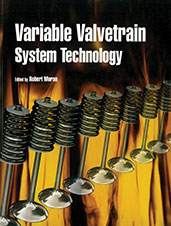Journal Article
Effects of Charge Motion, Compression Ratio, and Dilution on a Medium Duty Natural Gas Single Cylinder Research Engine
2014-09-30
2014-01-2363
Recent advances in natural gas (NG) recovery technologies and availability have sparked a renewed interest in using NG as a fuel for commercial vehicles. NG can potentially provide both reduced operating cost and reductions in CO2 emissions. Commercial NG vehicles, depending on application and region, have different performance and fuel consumption targets and are subject to various emissions regulations. Therefore, different applications may require different combustion strategies to achieve specific targets and regulations. This paper summarizes an evaluation of combustion strategies and parameters available to meet these requirements while using NG in a spark ignited engine. A single-cylinder research engine using a modified diesel cylinder head was employed for this study. Both stoichiometric combustion with cooled exhaust gas recirculation (EGR) and lean-burn were evaluated.

